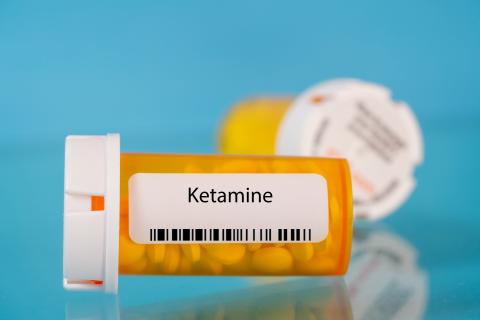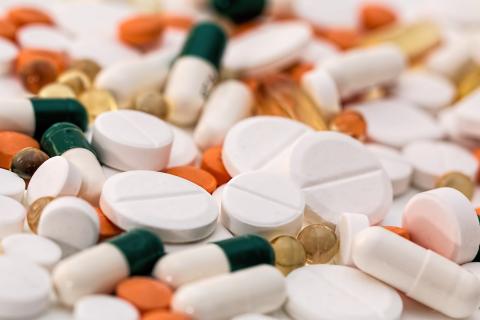Home brain stimulation device improves symptoms of depression, clinical trial finds
A phase 2 clinical trial has tested the efficacy and safety of a transcranial magnetic stimulation device used at home to treat major depression in 174 patients. After dividing them into two groups, one group received the treatment and the other a placebo procedure. After ten weeks, both groups had improved their symptoms, but the improvement in the active treatment group was 0.4 points greater on the Hamilton depression scale. According to the authors, who publish the results in the journal Nature Medicine, ‘it could potentially serve as a first-line treatment for major depression’.

Joaquim Raduà - estimulación depresión casa EN
Joaquim Raduà
Psychiatrist and head of the Imaging of Mood and Anxiety Disorders research group at IDIBAPS
This is a good quality study in which researchers randomly assigned participants to two groups: one received an active device and the other an inactive device. Participants did not know which group they belonged to, to prevent their expectations from influencing the results. Statistical analyses were rigorous. The study showed that both groups experienced an improvement in depressive symptoms, which is to be expected in this type of trial. However, the group using the active device showed a greater improvement. The size of this effect was 0.4, a value comparable to that observed with antidepressants.
This result is encouraging, as it suggests that this device could become one more alternative in the range of treatments available for depression, such as drugs like antidepressants, psychotherapies like cognitive behavioural therapy or physical exercise, among others. Given that each person has different preferences and responds differently to different treatments, having more options could increase the likelihood of finding the most appropriate intervention for each person.
Jose García Valdecasas - estimulación depresión casa EN
José García-Valdecasas
Psychiatrist, Vice-Secretary of the Board of the Spanish Association of Neuropsychiatry
This is a study on a treatment with transcranial magnetic stimulation applied at home, which compares this treatment with a stimulation simulated as a placebo. Using the Hamilton depression scale, commonly used in studies of this type, they find that the improvement with the treatment is about 9 points and with the placebo about 7. Although this difference reaches statistical significance, I do not consider it to have any clinical relevance. There are studies that assess that a difference of 2 points on the Hamilton scale is not appreciable in a clinical interview, i.e. it has no relevance for the patient.
Side effects are few and mild, but greater in the treatment group, which should also be taken into account.
Again, as is sadly often the case, there is no comparison with other active treatment, which would be useful for clinicians in assessing the relevance of this treatment.
In this era of global emphasis on mental health, many new treatments are appearing (with their economic interests behind them, obviously), but this one does not seem to present, with the study data in hand, any advances in the treatment of depression.
Conflict of interest: ‘I have had no conflicts of interest with pharmaceutical or medical device companies for about 15 years’.
Alberto Ortiz Lobo - estimulación depresión casa EN
Alberto Ortiz Lobo
Doctor of Medicine and Psychiatrist at the Carlos III Day Hospital - La Paz University Hospital (Madrid)
The research measures the effect of self-applied transcranial direct current stimulation at home, with the online assistance of a professional, versus sham stimulation, on reducing scores on a depression scale. The results of the study after ten weeks (too short a period to assess the true impact of the intervention in the medium to long term) indicate that both groups reduced their scores, both those who self-administered genuine and sham stimulation, but that the former scored significantly lower than the latter.
These results account for the placebo effect that occurs in efficacy studies. In this case, having a high-tech device applied to the head and monitored by a professional at each session generates hope and short-term improvements (we do not know what happens after ten weeks), even if the treatment is simulated. One wonders how much of the statistically significant difference is because many participants could sense whether they were in the treatment or sham group by the side effects that were anticipated by the participants: for example, 63.5% of those who received transcranial stimulation had reddening of the skin where the electrodes were placed (indicative of being in the treatment group), and only 18% of those who received sham reported this effect.
The researchers' extensive declaration of conflicts of interest is troubling because of the financial ties of many of them to biomedical companies involved in commercialising treatments, with the second signatory declaring that he works full-time for such a company. This study is also a constant illustration of how mental health research and its dissemination is determined by the large companies that sell medications and other technological products, which means that the hegemonic discourse on mental suffering and its approach is reduced to the individual and their brain, disregarding the social, biographical and wider contextual factors of people's lives.
Woodham et al.
- Research article
- Peer reviewed
- Clinical trial
- People



